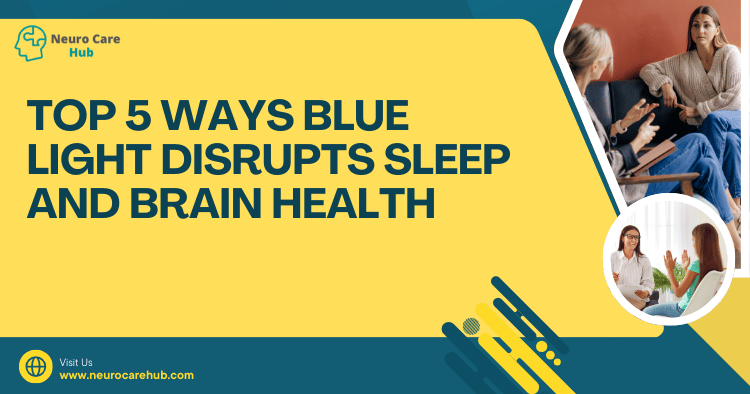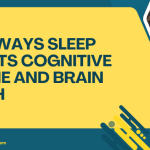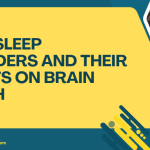Table of Contents
- Introduction
- 1. The Science Behind Blue Light
- 2. Disruption of Circadian Rhythms
- 3. Impact on Melatonin Production
- 4. Effects on Cognitive Function
- 5. Long-Term Health Risks
- Conclusion
- FAQs
- Also Look For
Introduction
In today’s digital age, blue light is an omnipresent part of our daily lives. Whether we’re scrolling through our smartphones, working on our laptops, or watching TV, we are constantly exposed to this type of light. While it does have some benefits, such as boosting alertness and improving mood, excessive exposure, especially in the evening, can wreak havoc on our sleep and brain health. In this article, we will explore the top five ways blue light disrupts our sleep and cognitive functions, helping you understand why it’s essential to manage your exposure.
Did you know? Blue light exposure can affect your sleep-wake cycle more than you might realize!
1. The Science Behind Blue Light
Blue light is part of the visible light spectrum, with wavelengths between 380 and 500 nanometers. It is emitted by digital screens as well as natural sources like sunlight. According to research from the American Academy of Ophthalmology, blue light exposure during the day can be beneficial, enhancing attention and reaction times. However, this same light can become detrimental when we’re exposed to it at night.
The key to understanding its effects lies in how blue light interacts with our biology. It stimulates retinal cells in our eyes that send signals to the brain’s suprachiasmatic nucleus, which regulates our circadian rhythms. This system is crucial for maintaining our sleep-wake cycles and overall health.
Image depicting the visible light spectrum and where blue light fits in.
Understanding light exposure is vital for maintaining a healthy sleep cycle.
2. Disruption of Circadian Rhythms
Circadian rhythms are the natural processes that regulate the sleep-wake cycle, typically following a 24-hour cycle. The presence of blue light, particularly in the evening, can shift these rhythms, leading to difficulties in falling asleep. A study published in the journal Sleep found that individuals exposed to blue light in the evening took longer to fall asleep and experienced less REM sleep compared to those who were not exposed.
How Blue Light Affects Your Body Clock
| Effect | Description |
|---|---|
| Altered Sleep Patterns | Exposure to blue light can delay sleep onset and reduce sleep quality. |
| Shifted Melatonin Release | Melatonin, the hormone responsible for sleepiness, is released later in individuals exposed to blue light. |
| Daytime Alertness | Disrupted rhythms can lead to excessive daytime sleepiness, affecting productivity. |
“Circadian rhythms are like your body’s internal clock, and blue light can easily throw it off.”
For more insights on the importance of understanding neuro care and how it affects sleep, check out Top 5 Essential Insights on Neuro Care You Need to Know.
3. Impact on Melatonin Production
Melatonin, often dubbed the “sleep hormone,” is produced by the pineal gland in response to darkness. Blue light exposure inhibits melatonin production, making it harder for your body to signal that it’s time to sleep.
The Role of Melatonin
| Factor | Effect |
|---|---|
| Blue Light Exposure | Reduces melatonin levels by up to 80% in the evening. |
| Sleep Onset Delay | Lower melatonin levels lead to increased difficulty falling asleep. |
| Sleep Quality | Reduced melatonin can compromise overall sleep quality and duration. |
“Melatonin is your body’s natural sleep aid, and blue light can disrupt its production.”
To learn more about the effects of melatonin on brain health, visit Top 5 Benefits of Regular Neuro Check-Ups for Your Health.
4. Effects on Cognitive Function
Blue light not only affects sleep but also has implications for cognitive performance. Research indicates that excessive exposure to blue light can impair attention, memory, and decision-making abilities. A study in Nature found that participants who had disrupted sleep due to blue light exposure performed significantly worse on cognitive tests compared to those with adequate sleep.
Cognitive Effects of Sleep Disruption
| Cognitive Function | Impact of Sleep Disruption |
|---|---|
| Memory Consolidation | Poor sleep affects the brain’s ability to consolidate memories. |
| Attention Span | Sleep deprivation leads to shorter attention spans and decreased focus. |
| Decision-Making Skills | A lack of quality sleep can impair critical thinking and problem-solving abilities. |
“Your brain needs quality sleep to function at its best—blue light can be a major hurdle.”
For a deeper understanding of mental health implications, check out Top 5 Neurological Disorders Impacting Mental Health.
5. Long-Term Health Risks
Chronic exposure to blue light and subsequent sleep disruption can lead to serious long-term health problems. Research has linked poor sleep quality to various conditions, including obesity, diabetes, cardiovascular diseases, and even mental health disorders like depression and anxiety.
Potential Long-Term Health Risks
| Health Risk | Description |
|---|---|
| Obesity | Disrupted sleep patterns can lead to weight gain due to hormonal imbalances. |
| Cardiovascular Disease | Sleep disruption is linked to increased risk factors for heart disease. |
| Mental Health Issues | Chronic sleep deprivation is associated with higher rates of anxiety and depression. |
“Sleep deprivation doesn’t just affect you today; it can have serious long-term health consequences.”
To explore these risks further, refer to Top 5 Challenges in Global Neuro Care Access Today.
Conclusion
Understanding how blue light affects our sleep and brain health is crucial in today’s digital environment. By being mindful of our exposure to blue light, especially during the evening hours, we can take proactive steps to safeguard our sleep quality and cognitive function. Consider implementing strategies such as using blue light filters on devices, reducing screen time before bed, and creating a relaxing bedtime routine to promote better sleep.
“Awareness and adjustments can lead to better health—start today!”
FAQs
Q: What are some signs that blue light is affecting my sleep?
A: Signs may include difficulty falling asleep, frequent waking during the night, and feeling tired during the day.
Q: How can I reduce blue light exposure?
A: You can reduce exposure by using blue light-blocking glasses, enabling night mode on devices, and limiting screen time in the evening.
Q: Is all blue light harmful?
A: Not all blue light is harmful; exposure during the day can be beneficial. It’s the evening exposure that tends to disrupt sleep.
Q: Are there any apps that can help manage blue light exposure?
A: Yes, several apps can filter blue light on your devices, such as f.lux and Twilight.
Also Look For
For additional insights on how to improve your brain health and cognitive function, consider exploring the following resources:
- Top 5 Ways to Integrate Neuro Care into Your Wellness Routine
- Top 5 Tips for Choosing the Right Neurologist
- Top 5 Benefits of the Mediterranean Diet for Brain Health
By taking these steps, you can enhance your sleep quality and safeguard your brain health, paving the way for a more energized and productive life.






